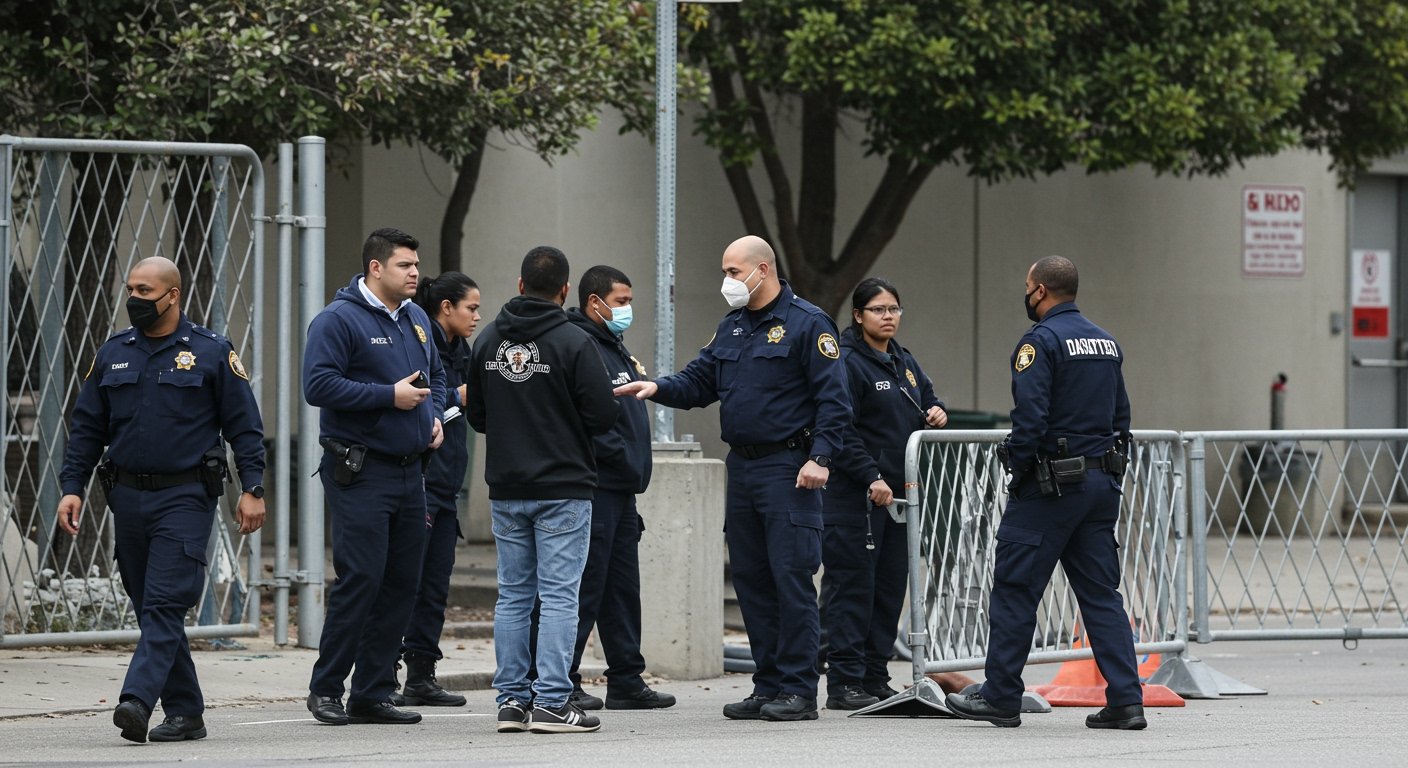ADELANTO, CA – A rapid and significant increase in the detainee population at the Adelanto ICE Processing Center, California’s largest immigration detention facility located approximately 85 miles northeast of Los Angeles, is triggering renewed concerns regarding the conditions and treatment of individuals held there. Critics warn of potentially inhumane conditions, citing issues ranging from moldy food to insufficient access to basic necessities like clean towels and clothing.
The surge follows a series of mass enforcement actions conducted by federal immigration agents across Southern California. According to data provided by the American Civil Liberties Union (ACLU) of Southern California, the number of detainees held at the Adelanto facility has soared from approximately 300 near the end of April to over 1,200 as of this past Wednesday. This dramatic rise in population within a relatively short period is placing considerable strain on the facility’s resources and operations.
Scrutiny and Allegations of Neglect
The deteriorating conditions and treatment within the facility have drawn sharp criticism from oversight groups and elected officials. Congressmember Judy Chu recently conducted an inspection of the Adelanto center and subsequently issued a strong statement addressing her findings.
Congressmember Chu stated that based on her observations and conversations, the facility manager must urgently improve the treatment of detainees. Her comments echo long-standing concerns about the private detention center’s operations, which have faced previous legal challenges and public scrutiny.
Detainees themselves have reported distressing conditions. Among the specific accounts emerging from the facility, some detainees have reported being held for as long as 10 days without receiving changes of clothes, underwear, or towels. Furthermore, allegations have surfaced that detainees are being denied essential telephone access, hindering their ability to communicate with legal counsel, family members, or support networks.
These specific reports, coupled with broader concerns about hygiene and access to clean food, including mentions of “moldy food” and “dirty towels” by critics, paint a troubling picture of the environment inside the processing center amidst the population increase.
Facility History and Recent Reopening
The Adelanto ICE Processing Center is a sprawling facility with a stated capacity of 1,940 beds. However, it had been operating at a significantly reduced capacity for several years following a major legal challenge.
In 2020, a class-action lawsuit was filed concerning the risks posed by COVID-19 within the detention environment. This lawsuit led to a federal judge issuing orders that mandated the release of certain detainees from the facility and prohibited the intake of new individuals for a period. The ruling effectively constrained the facility’s operational capacity as a measure to mitigate public health risks during the pandemic.
However, the legal landscape surrounding the facility’s operations has shifted this year. Recent federal court orders, with the most recent being issued in early June, have paved the way for the Adelanto facility to fully reopen and resume processing new intakes. This reopening aligns with increased immigration enforcement activities being carried out by federal agents, leading directly to the current surge in detainee numbers.
Ongoing Concerns and Calls for Oversight
The return to near-full capacity and the subsequent allegations of substandard and potentially inhumane conditions have reignited calls for greater transparency and oversight of the Adelanto ICE Processing Center. Advocacy groups like the ACLU of Southern California continue to monitor the situation closely and highlight the human cost of rapid detention increases without adequate infrastructure and care.
The situation at Adelanto underscores broader national debates surrounding immigration enforcement policies and the conditions within detention facilities. As the detainee population continues to fluctuate based on enforcement priorities and court decisions, the focus remains on ensuring the safety, health, and humane treatment of all individuals held in such centers.





